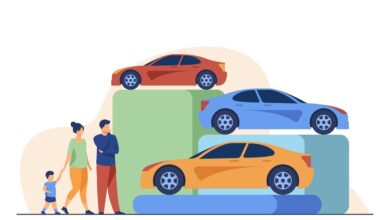How does insurance coverage work for Self-Driving Cars And The Future Of Autonomous Vehicles?
Key Takeaways:
- Although fully autonomous vehicles are not yet available, advancements in driverless car technology will have an impact on auto insurance.
- However, there are additional concerns with self-driving cars, including risk, safety, and insurance for these innovative vehicles.

The insurance sector will shift as fully autonomous vehicles become more prevalent and as their technological advancements continue to advance. The cost of coverage is one aspect of auto insurance that will change as a result of driverless automobiles. Accidents and claims will decline as driverless technology advances and human driving becomes less common. cut costs for insurance companies will result in fewer claims, which will cut auto insurance prices.
How will insurance change with self-driving cars?
- Self-driving vehicles will probably have an impact on how much auto insurance costs overall and how much rates are determined.
- Typically, personal information such as your age, residence, and driving history is used by auto insurance companies to calculate your rate based on the likelihood that you would file a claim in the future.
- However, insurance costs for drivers who are currently thought to be the most likely to be in an accident might decrease in a world where self-driving cars lower the likelihood that anyone is engaged in an accident.
- Why would young drivers’ rates be noticeably higher if, for instance, they were no longer filing claims at a higher rate than older drivers?
- Under this scenario, insurance firms would have to reconsider how best to estimate a driver’s insurance risk in light of self-driving automobiles.
- Auto insurance may potentially be affected by driverless cars if additional discounts are offered to owners of vehicles that frequently utilise their autonomous capabilities.
- This is already beginning to happen with Rivian, Tesla, and GM. These businesses provide their own insurance, which gives drivers discounts for safely and correctly utilising hands-free technology while driving.
Do self-driving cars have less expensive insurance?
- Despite the fact that self-driving insurance is still in its infancy, owning a car with autonomous technology has several advantages.
- Though self-driving car technology varies from brand to brand in terms of sophistication, every automobile equipped with safety systems can result in a minor reduction in insurance costs.
- Driver-assistance technologies like lane-departure alerts, collision avoidance, blindside recognition, automated parking, and automatic lights are probably already included in autonomous technology.
- When compared to other comparable newer cars, insurance prices for cars with these self-driving features can occasionally be lower.
- However, if the car is damaged, the expense of replacing or repairing the technology may also maintain rates higher than for a car without any self-driving features.
Which insurance providers now offer advantages for self-driving cars?
- Some automakers already provide insurance coverage for their self-driving car models.
- Businesses with their own insurance include Tesla, Rivian, and General Motors (via its OnStar Insurance).
- Depending on how they drive and whether they employ self-driving technologies, drivers with one of these manufacturer’s auto insurance policies may receive a reduction in premiums.
- For instance, each driver’s Safety Score affects how much their Tesla insurance costs.
- Your car’s automated features—such as how well you use Autopilot or if you’ve avoided collision warnings—are used to determine your Safety Score.
- Most drivers with a high Safety Score, according to Tesla, can save 20% to 40% on an insurance premium.
- Parallel to this, Rivian’s own take on self-driving insurance promotes the adoption of Highway Assist, the automaker’s autonomous driving assistance programme, by drivers.
- According to Rivian, you might reduce your insurance costs by up to 15% if you frequently use Highway Assist.
What does this mean for you?
Some have questioned whether insurance is necessary at all in a future where few individuals drive their own automobiles due to the potential of completely autonomous vehicles. However, studies indicate that insurance would be helpful even in a world without drivers. According to a RAND Corporation analysis on the future of self-driving auto insurance, as self-driving cars become more common, manufacturers’ liability is probably going to rise. In addition, RAND suggested that drivers might enhance their no-fault insurance coverage to cover the costs of repairing their own vehicles in the event of an accident.







